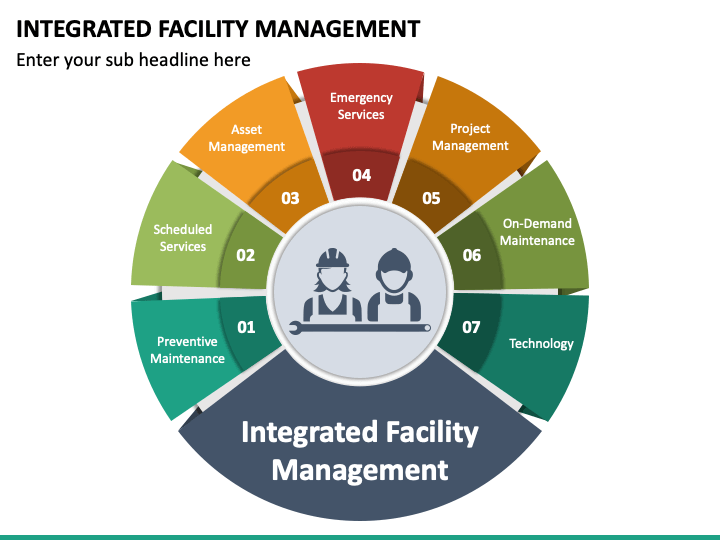Why Total Facility Management Is Crucial for Organization Success
Total Facility Management (TFM) serves as a cornerstone for service success by harmonizing diverse operational elements such as upkeep, room application, and safety measures. As services browse an affordable landscape, recognizing the complex advantages of TFM can be pivotal in driving cost effectiveness and enhancing staff member productivity.
Understanding Total Facility Management
Total Facility Management (TFM) encompasses an extensive technique to taking care of a company's structures and linked solutions to ensure ideal performance, security, and performance. TFM incorporates numerous disciplines, including maintenance, procedures, room management, and safety and security methods, to develop a natural structure that supports an organization's core objectives.
At its core, TFM aims to improve the procedures associated with facility management, improving and minimizing redundancies service shipment. This technique includes the coordination of activities related to property management, such as fixings, cleansing, and power management, to foster an effective setting for workers and stakeholders alike. TFM also stresses the value of executing best methods and ingenious modern technologies to enhance service top quality and minimize operational expenses.
By lining up facility management activities with organizational objectives, TFM boosts overall performance while making certain compliance with health, security, and ecological regulations. Therefore, TFM offers not just as a logistical feature but also as a calculated property, adding to an organization's long-lasting sustainability and development.
Key Benefits of TFM
Leveraging a detailed strategy, organizations that execute Total Facility Management (TFM) unlock a myriad of benefits that contribute to general organization success. Among the primary advantages of TFM is the enhancement of operational effectiveness. By settling facility solutions under a unified management framework, companies can streamline processes, lower redundancies, and boost interaction throughout divisions.
In addition, TFM advertises an aggressive upkeep strategy, which minimizes downtime and extends the lifespan of facilitiess and tools (Total Facility Management). This aggressive strategy not just boosts performance yet likewise promotes a much safer working atmosphere, ultimately resulting in higher employee fulfillment and retention prices
Furthermore, TFM assists in much better source allowance by offering insights into facility performance metrics. Organizations can identify areas for improvement, allowing them to make informed decisions that align with their tactical goals.
TFM and Cost Effectiveness
Achieving cost efficiency is a fundamental goal for organizations, and Total Facility Management (TFM) plays an essential function in this undertaking - Total Facility Management. By incorporating different facility solutions under a single management structure, TFM enables companies to simplify procedures and lower redundancies. This all natural strategy leads to substantial price savings, as it eliminates the demand for numerous vendors and simplifies procurement procedures
In addition, TFM promotes aggressive upkeep approaches, which lessen the threat of costly fixings and downtime. By focusing on safety nets, companies can expand the life-span of their properties and decrease unexpected expenses. Additionally, TFM includes energy management techniques, which can dramatically cut utility expenses via effective resource use.
The centralization of information and analytics within TFM enables organizations to make educated financial decisions. By recognizing fads and areas for enhancement, TFM allows tailored approaches that even more enhance cost management. The scalability of TFM remedies ensures that as organizations grow, their facility management practices remain effective and lined up with monetary goals.
Enhancing Worker Efficiency
A well-managed facility can dramatically boost employee productivity by creating a conducive workplace. Reliable Total Facility Management (TFM) makes sure that all elements of the work environment-- from illumination and temperature to tidiness and security-- are optimized. When employees run in a room that is properly maintained and comfy, they are most likely to concentrate on their tasks, resulting in greater result and task satisfaction.
In addition, TFM can boost here are the findings partnership with the tactical design of communal locations, urging team effort and development. By buying the right sources and innovation, organizations can facilitate smooth interaction and enhance workflows, even more enhancing productivity. Normal upkeep and timely responses to facility problems avoid disruptions that can or else hinder performance.
In addition, a secure and healthy job environment, supported by TFM methods, reduces absenteeism and advertises well-being, straight correlating with increased performance degrees. Ultimately, prioritizing facility management is an investment not only in physical assets yet additionally in the labor force itself. By fostering an environment that supports staff member requirements and preferences, businesses can grow an extra engaged and efficient labor force, driving overall success and affordable benefit.

Future Trends in TFM
Accepting technical developments is established to reshape the landscape of Total Facility Management (TFM) in the coming years. As the need for efficiency and sustainability increases, TFM will progressively embrace clever structure modern technologies, incorporating Internet of Things (IoT) tools to monitor and manage facility procedures in real-time. This change will certainly enable proactive upkeep, significantly reducing operational prices and boosting solution delivery.

Sustainability stays a critical focus, with TFM specialists expected to prioritize green practices. This consists of making use of renewable resource resources and maximizing waste management systems to decrease the carbon impact of facilitiess.
Remote management capabilities will likewise be broadened, enabling facility supervisors to look after procedures from basically anywhere. This flexibility will become important as organizations adapt to hybrid work models. In summary, the future of TFM is poised for transformation through technology, sustainability, and enhanced operational techniques, guaranteeing companies stay competitive in a developing landscape.
Final Thought
By incorporating different functional features, TFM enhances performance and aligns facility management with business goals. As businesses significantly embrace sustainable techniques and innovative modern right here technologies, the value of TFM will proceed to grow, ensuring lasting operational performance and competitiveness in a progressing marketplace.
